2017 Potsdam Ocean Governance Workshop
From December 13 to 13, Nereus Senior Fellow Gerald Singh will be attending the Potsdam Ocean Governance Workshop at the Institute for Advanced Sustainability Studies.
From December 13 to 13, Nereus Senior Fellow Gerald Singh will be attending the Potsdam Ocean Governance Workshop at the Institute for Advanced Sustainability Studies.
On Friday, November 10 at 11:00am, Nereus Program Fellow Gerald Singh (UBC) will be delivering a presentation on “The Oceans Enabling Sustainable Development, and Development Enabling Sustainable Oceans” in AERL…

“The intersectoral and interdisciplinary nature of the ISIMIP approach meant that topics were very broad and spanned both land and sea, natural science, social science, economics, human health, and policy,” said Tyler Eddy. “This perspective was very interesting to consider big ideas and issues at broad scales, however as a result of this broad approach, detailed ocean processes weren’t covered as much.”
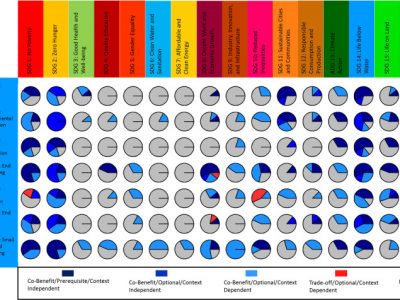
A new paper, ‘A rapid assessment of co-benefits and trade-offs among Sustainable Development Goals‘, has been published in Marine Policy and includes contributions from various Nereus affiliates. This study highlights how achieving SDG 14: Life Below Water targets contributes to the accomplishment of other SDGs
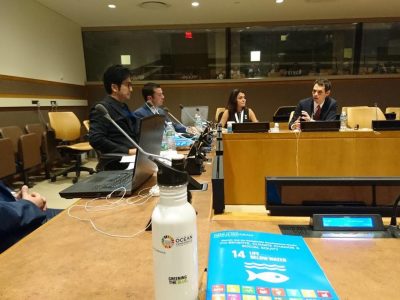
The United Nations Ocean Conference to “Support the Implementation of Sustainable Development Goal 14” was held in New York at the UNHQ between June 5 and 9, 2017. On Friday June 9, the Nereus Program hosted a side event, ‘The Role of the Oceans in Sustainability: Benefits of Achieving SDG 14 for all Sustainable Development Goals,’ at the conference. This side event introduced recent research that evaluates how achieving ocean SDG 14 targets contributes to- and in some cases is required for – the achievement of other SDG targets.
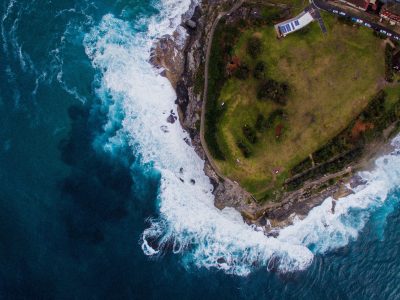
Human activities degrade and convert coastal ecosystems through infrastructure development, resource extraction, and tourism, among other anthropogenic activities. There is an urgency to gain a comprehensive understanding of how human activities/stressors impact coastal ecosystems and the ecosystems services they provide us.
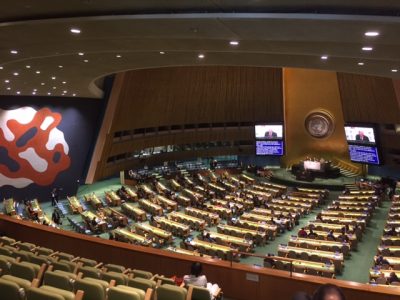
The third day of the UN Ocean Conference continued with plenary discussions between member state representatives on making fisheries sustainable and increasing benefits to small island developing States (SIDS) and least developed countries (LDCs).
A healthy ocean will benefit global sustainable development in a number of ways, finds a new report published today by the Nippon Foundation-Nereus Program. With climate change and social inequity addressed, restoring the ocean will help alleviate poverty, provide livelihoods, and improve the health of millions around the world.
On Monday, February 27, the Nereus Program will hold a seminar along with UBC’s Green College on the topic of “The Human Dimension of Marine Conservation.” 4:30-5pm – Meet and…
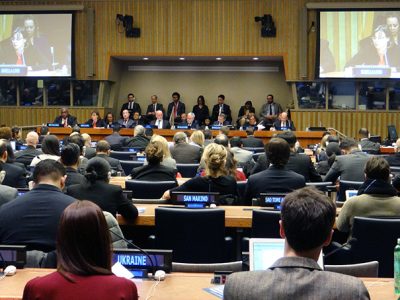
The Nereus Program facilitated a side event on February 16 entitled: “Co-Benefits of Achieving SDG Goal 14 to Wider SDGs: Prioritizing Action Given Climate Change and Social Inequity”. The theme of the event was implications of changing oceans on the advancement of SDG’s, with an emphasis on the co-benefits of achieving ocean targets on other environmental, economic, and social equity goals.